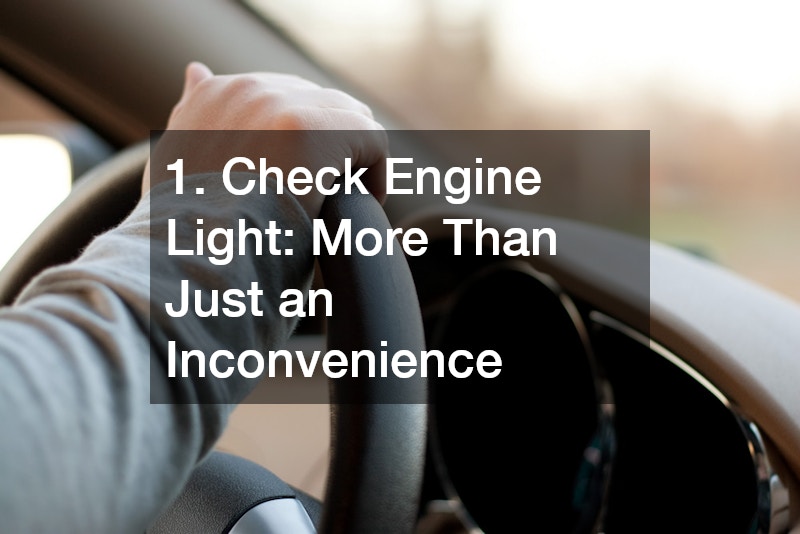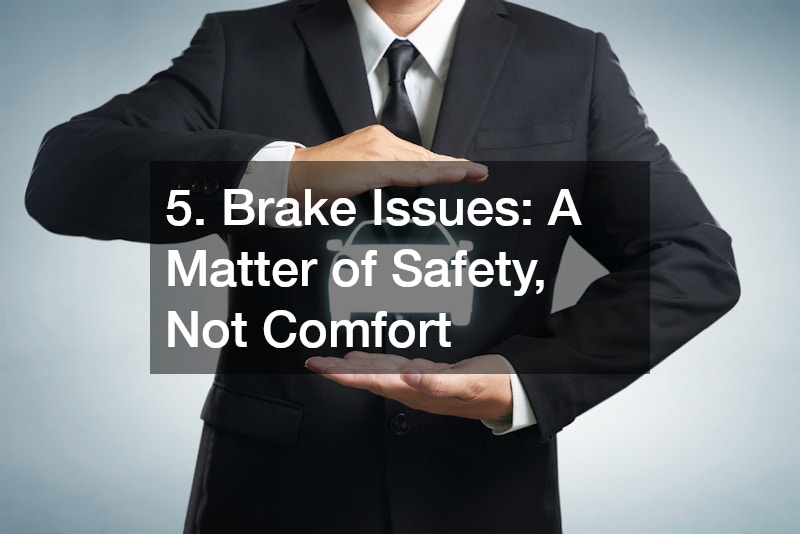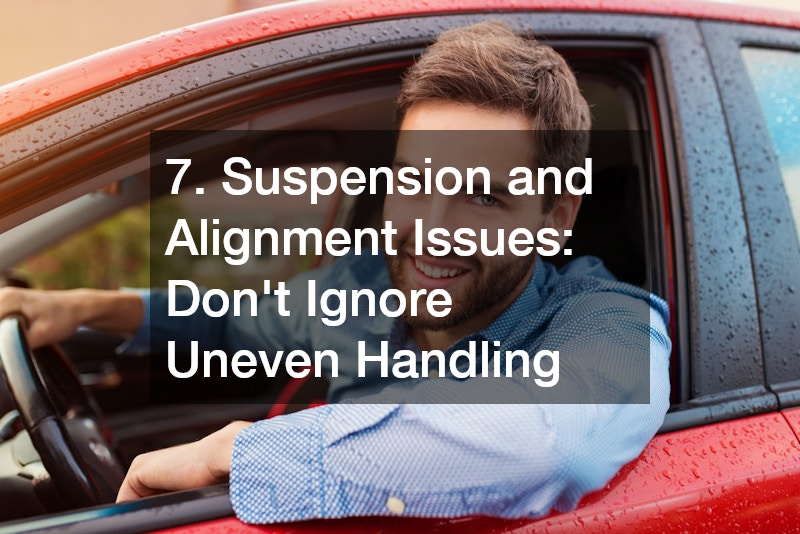For many people, a car isn’t just a convenience—it’s a necessity. Whether you’re commuting to work, taking road trips, or running errands, a reliable vehicle is central to daily life. But even the most well-maintained car will eventually face wear and tear. Over time, components degrade, fluids break down, and systems begin to fail. Knowing how to spot the early warning signs of trouble can make the difference between a minor repair and a costly catastrophe. That’s why it’s important to understand the most common car issues and how to address them.
Unfortunately, many drivers ignore warning signs or delay necessary maintenance, often hoping the issue will resolve itself or fearing the potential cost of diagnosis. In reality, early attention can often save thousands in repair bills and prevent serious safety hazards. Modern vehicles are sophisticated machines made up of numerous interconnected systems—when one part fails, it can trigger a cascade of other problems if not addressed quickly.
This blog explores the most common vehicle issues that you should never ignore, from mysterious noises and fluid leaks to electrical glitches and performance drops. We’ll also discuss how staying proactive and working with the right professionals—whether you’re looking for auto repair services, transmission help, or specialized repairs like jeep lifts or recreational vehicle maintenance—can extend your vehicle’s life and keep you safe on the road.

- 1. Check Engine Light: More Than Just an Inconvenience
- 2. Strange Noises: Listen to What Your Car Is Saying

- 3. Leaking Fluids: Spotting the Signs Early
- 4. Battery Troubles: A Common Culprit Behind Car Failures

- 5. Brake Issues: A Matter of Safety, Not Comfort
- 6. Transmission Troubles: A Costly Problem That Starts Small

- 7. Suspension and Alignment Issues: Don’t Ignore Uneven Handling
- 8. Exhaust and Emissions Problems: Bad for the Car and the Environment
- 9. Cosmetic and Structural Damage: More Than Just Looks
- 10. Specialized Vehicle Maintenance: Don’t Neglect the Niche
1. Check Engine Light: More Than Just an Inconvenience
The dreaded check engine light is one of the most common car issues and also one of the most misunderstood. Many drivers see it come on and immediately panic—or worse, completely ignore it. The reality is that this indicator can mean anything from a loose gas cap to a serious engine malfunction.
Ignoring this warning could lead to long-term damage, especially if it’s related to your emissions system, spark plugs, or engine misfires. While some diagnostic tools can give you a code, they don’t always reveal the full story. It’s best to have the issue evaluated by professionals offering trusted auto repair services, who can accurately pinpoint the problem and suggest the appropriate fix.
Even if the car appears to be running fine, don’t assume the light is harmless. Modern engines rely on a delicate balance of fuel, air, and spark, and the check engine light is your vehicle’s way of alerting you to potential trouble. Addressing it early can prevent further complications and higher repair costs down the road.
2. Strange Noises: Listen to What Your Car Is Saying
If your car starts making noises you haven’t heard before—clicking, squealing, grinding, or knocking—it’s time to investigate. One of the most common car issues drivers face is unusual sounds that signal mechanical or structural problems.
For instance, a grinding noise while braking may suggest worn-out pads or rotors. Squealing under the hood could point to a loose or damaged serpentine belt. Knocking from the engine area might indicate low oil pressure or faulty bearings. Left unresolved, these noises often evolve into bigger and more expensive problems.
It’s especially critical to pay attention to these signs after you’ve made performance upgrades, like installing jeep lifts or larger tires. Changes in weight distribution and suspension can put additional stress on the vehicle, making regular inspections and maintenance even more important.
Your car is trying to communicate with you—so don’t turn up the radio to drown it out. Get any unfamiliar sound checked by a professional as soon as possible.
3. Leaking Fluids: Spotting the Signs Early
Fluid leaks are among the most common car issues, and if you notice puddles forming underneath your vehicle, you should act immediately. Your car relies on several essential fluids—engine oil, coolant, transmission fluid, brake fluid, and power steering fluid—to function properly. Losing even a small amount of these can lead to severe consequences.
Identifying leaks based on color and location can help you explain the issue to your mechanic. For example, red or pink fluid typically suggests a transmission repair issue, while a brown or black spot under the engine may be leaking oil. A green or orange puddle likely points to coolant.
Rather than topping off fluids and hoping for the best, consult a mechanic who can find the source and repair it. Some leaks may be due to failing seals, degraded hoses, or damage caused by rough road conditions or minor auto body repairs. Catching the problem early ensures you avoid breakdowns and keeps your car operating at peak performance.
4. Battery Troubles: A Common Culprit Behind Car Failures
It’s easy to forget about your car’s battery until the day it fails. Battery issues are among the most common car issues and can leave you stranded if not addressed. A weak battery might cause sluggish starts, flickering lights, or problems with electronic components.
While battery life typically ranges from three to five years, climate, driving habits, and frequent short trips can shorten that span. Cold weather, in particular, puts extra strain on the battery, often causing sudden failure when you least expect it.
In addition to testing your battery regularly, inspect it for corrosion, loose terminals, or swelling. Mechanics at local auto body shops often include battery checks during routine service visits, which makes it easy to catch problems early.
If you find yourself frequently jump-starting your vehicle or experiencing electrical inconsistencies, it may be time for a replacement—or it could indicate a deeper problem with the alternator or charging system.
5. Brake Issues: A Matter of Safety, Not Comfort
Brake problems are not just inconvenient—they’re dangerous. Among the most common car issues drivers face, brake wear and failure rank high, yet many people delay service because the decline is gradual and not always obvious.
Common symptoms include squealing or grinding noises, a soft or spongy brake pedal, pulling to one side while braking, or longer stopping distances. Any of these signs should prompt an immediate inspection. Brakes are your vehicle’s first line of defense against accidents, and waiting too long can lead to more costly repairs, such as rotor replacement or even caliper damage.
If your vehicle is custom or performance-enhanced—perhaps with features like a truck bedliner that encourage off-road use—brake checks should be even more frequent. Added weight or rugged terrain can increase wear.
A reliable shop offering comprehensive auto repair services can evaluate your entire braking system and replace worn components with high-quality parts to restore full stopping power.
6. Transmission Troubles: A Costly Problem That Starts Small
The transmission is one of the most complex—and expensive—parts of your vehicle. It’s responsible for transferring power from the engine to the wheels and enabling your car to change gears. One of the most common car issues that leads to complete breakdowns is neglected transmission problems.
Early signs of trouble include rough shifting, slipping gears, a burning smell, or unusual noises while the car is in gear. Transmission fluid leaks are also a red flag, as this fluid is essential for cooling and lubrication.
Because of the system’s complexity, transmission problems should always be handled by specialists. If you suspect an issue, don’t wait. Seek out a shop experienced in transmission repair, which can often restore function without needing a full rebuild—if caught early.
Routine maintenance like fluid flushes and filter replacements can help prolong your transmission’s life. Regular check-ups prevent minor wear from evolving into a major—and expensive—repair.
7. Suspension and Alignment Issues: Don’t Ignore Uneven Handling
Does your car pull to one side, bounce excessively, or feel “loose” on turns? These symptoms often signal issues with your suspension or wheel alignment—both of which fall under the most common car issues seen by repair shops.
Your suspension system absorbs bumps and ensures tire contact with the road. If parts like shocks, struts, or bushings are worn, your car’s handling becomes unpredictable. Meanwhile, misaligned wheels lead to uneven tire wear and poor fuel efficiency.
These problems are even more noticeable in specialty vehicles, such as compact performance cars that require precise handling. If you’re driving something like a Mini, don’t hesitate to schedule regular mini cooper auto repairs to ensure everything stays dialed in.
Ignoring suspension or alignment issues doesn’t just impact your driving experience—it puts unnecessary strain on other components and increases the risk of accidents, especially during emergency maneuvers.
8. Exhaust and Emissions Problems: Bad for the Car and the Environment
Your exhaust system is responsible for controlling emissions and reducing engine noise. Issues with this system, like leaks or malfunctioning sensors, rank high among the most common car issues—and they can be both noisy and dangerous.
A failing catalytic converter, for instance, can trigger the check engine light and affect fuel economy. A cracked exhaust manifold can let harmful gases like carbon monoxide seep into the cabin, creating a health hazard. If you notice an unusual smell, reduced performance, or louder-than-normal engine noise, have your exhaust system checked right away.
For owners of diesel trucks, this becomes even more critical. Diesel engines have specific exhaust treatment systems that must be maintained to meet environmental regulations. Professionals who specialize in local diesel repairs are equipped to handle these issues efficiently and ensure compliance with emissions standards.
Early attention helps avoid fines from failed emissions tests and keeps your vehicle running cleanly and efficiently.
9. Cosmetic and Structural Damage: More Than Just Looks
While it’s easy to view cosmetic damage as low priority, failing to address it can lead to bigger issues. Dents, scratches, and chipped paint expose your car to rust and corrosion, which compromise structural integrity over time. This is especially true in regions with harsh winters or salty coastal air.
Even if you’ve had a minor fender bender, it’s wise to consult a professional for auto body repairs. What appears to be surface damage could hide deeper alignment or frame problems. Unchecked, these can affect how your car drives and how it performs in a collision.
If you’re looking to restore or enhance your truck, cosmetic updates can also include protective coatings and stylized finishes. A local truck painting service can give your vehicle a fresh look while preserving its exterior from sun and moisture damage.
Cosmetic fixes are an important part of long-term maintenance, not just an aesthetic choice. They protect your investment and keep your vehicle looking—and functioning—its best.
10. Specialized Vehicle Maintenance: Don’t Neglect the Niche
Not all vehicles are created equal. Recreational vehicles, lifted trucks, and performance cars all require specific maintenance plans. One of the most common car issues for specialty vehicles is improper or delayed service due to lack of awareness or access to qualified professionals.
Take RVs, for example. These large, multi-system vehicles blend automotive and home-like components, making them uniquely complex. Regular recreational vehicle repairs are essential to keep them roadworthy, safe, and enjoyable. Plumbing, HVAC, and electrical systems all need just as much attention as the engine or chassis.
Likewise, performance trucks with custom modifications—like jeep lifts—require routine checks to ensure suspension integrity, driveline compatibility, and proper alignment. Oversized tires and altered geometry can create strain on factory components if not regularly inspected.
Understanding your vehicle’s unique needs and building relationships with specialists who offer tailored auto repair services ensures that niche problems don’t become major liabilities.
No one enjoys dealing with car trouble, but understanding the most common car issues is a powerful step toward preventing them. Many vehicle failures begin with small signs—noises, warning lights, strange vibrations, or leaks—that escalate when ignored. By recognizing and addressing these early symptoms, you protect both your vehicle and your safety.
From everyday concerns like brake wear and fluid leaks to specialty needs like Mini Cooper auto repairs, local diesel repairs, or maintenance for recreational vehicles, the key is consistency. Regular checkups, timely repairs, and attention to detail can extend your vehicle’s life and help you avoid costly breakdowns.
Your vehicle deserves professional care, whether that means visiting local auto body shops for cosmetic restoration, consulting with a transmission repair expert, or getting custom work from a local truck painting service. It’s all about proactive ownership. The better you understand your car’s needs, the better it will serve you on the road ahead.
When it comes to auto care, don’t wait until a minor issue becomes a major one. The most common car issues may start small—but they’re warning signs you shouldn’t ignore. Address them early, and you’ll drive safer, longer, and with greater peace of mind.
